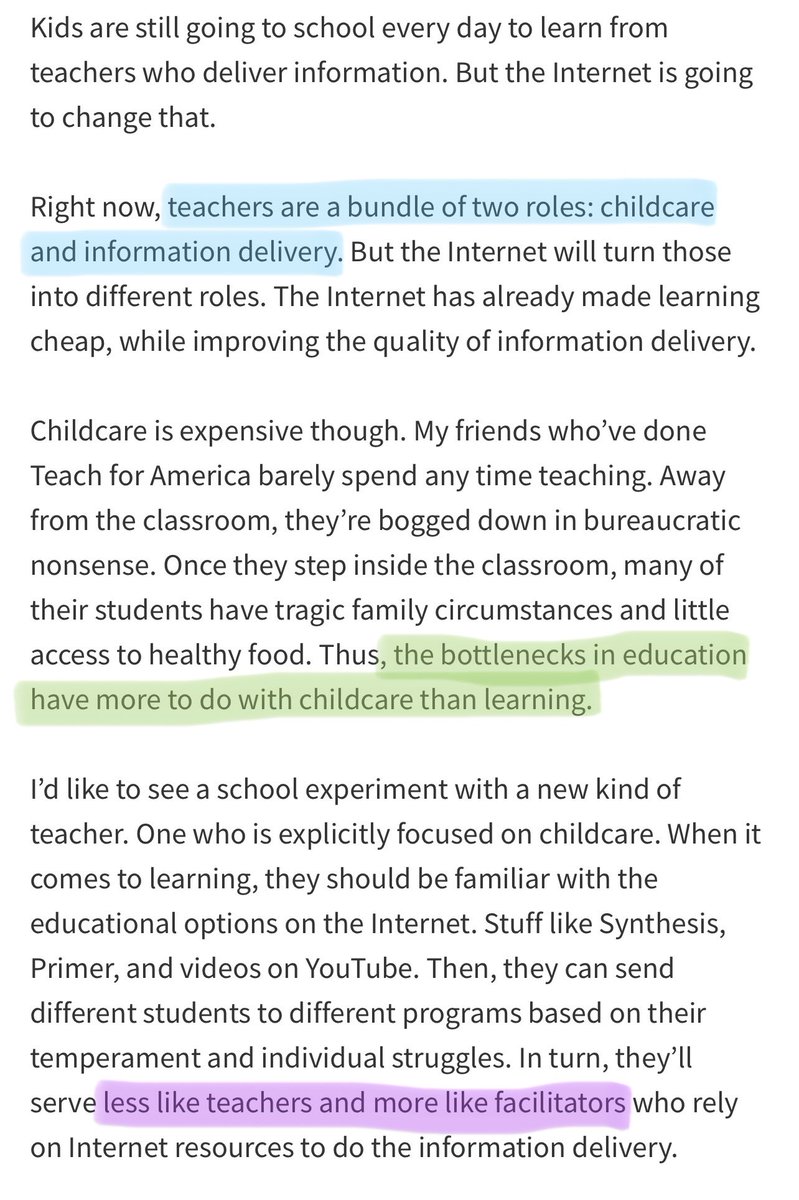
The Internet rewards unique people. Find your unique combination of skills, interests, and personality traits. I call this a Personal Monopoly. Become the only person in the world who does what you do. Then, tell the world by sharing your knowledge. pic.twitter.com/FcvdiEjo5Q

Here’s my conversation with @david_perell and @chrismanfrank —two of my favorite folks on the internet! We talk about Synthesis, how childhood education is changing, and apparently my love for talking 🤸🏽♀️ Thanks for having us, David ✨ podcasts.apple.com/us/podcast/nor…

Now its YOUR turn to discover your ‘specific knowledge’ and create a life of meaning and joy. 💥 Don’t miss this this workshop with @anafabrega11 and @david_perell 👇🏻 lu.ma/1wy9uuqr

Find things that inspire you, save the best stuff, use it as the raw material for your work, and aim to eventually transcend it. Or, simply: Imitate, then innovate. pic.twitter.com/inDREPLuN8
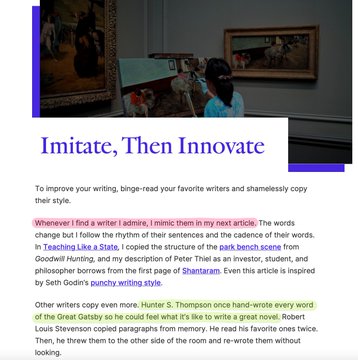
I found some notes from an Amazon mechanisms workshop in 2018. Here's how they define a mechanism: "A complete process which converts inputs into desired outputs on an ongoing recurring basis." pic.twitter.com/z6jJLZeyB8
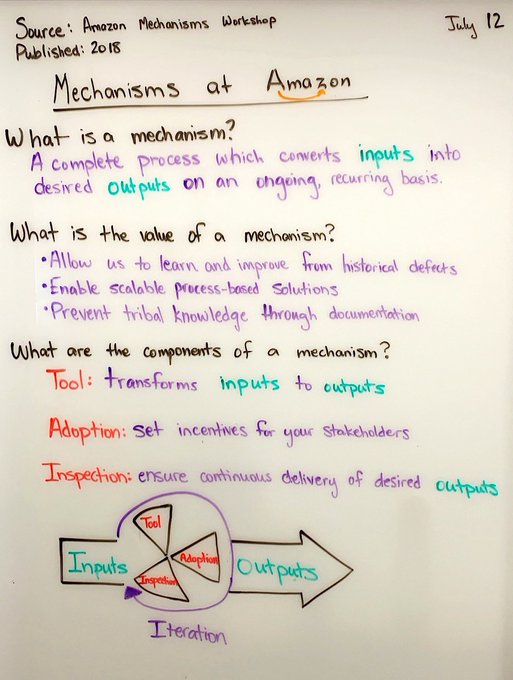
Write like your reader talks. Read a bunch of Internet forums about whatever you're writing about. Identify common phrases and put them into a list. Then, use their language whenever you write. By writing like a friend, you build trust.
Kobe didn’t live his life for the normal things people live for: happiness, fulfillment, and relationships, which didn't compare to his love for basketball and his obsession with being the greatest of all time. Here's my Kobe Bryant mini-documentary. youtube.com/watch?v=YfgprE…

The Creator Economy: Where the things that made you a weird kid now make you a successful adult

I'm driven by two virtues: discipline and creativity. Discipline is the voice of a strict coach who is always telling me to rise up. Creativity is the kid who craves playfulness and is allergic to judgment. These voices usually fight, but I'm at my best when they're friends.

The Simpsons secret to writing: Create an imperfect world, then improve it. pic.twitter.com/5sokPpFWHu
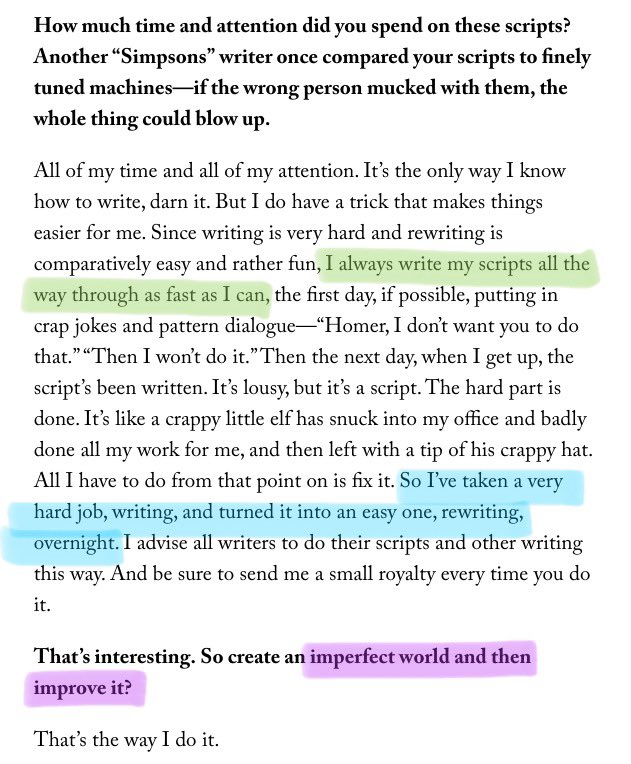
How good writing works. The reader: “Good piece! You must have written it in just a couple hours because you’re a natural talent.” The writer: “Ummm... nope. I actually rewrote the entire piece four times.” The reader: “No way, it reads so naturally.” The writer: “Exactly.”
Questions about imposter syndrome always fire me up pic.twitter.com/fSu7cBdirQ

Writing gets easier when you think of yourself as a painter, where each draft is a sketch that builds up to the final painting at the end
A history class where you learn by going to museums instead of sitting in a classroom all day
Amazon’s philosophy of making people write memos before meetings is smart, not just because it improves thinking, but because it makes it costly to host meetings

Tests in school should be open book, just like real life

Principle of writing: Play first, perfect later. We discover our best ideas in a state of child-like creativity when our rational minds are off. But later, when we need to refine those ideas, we need an adultish eye of judgment.
School tries to box you into a specific subject. It seems like every paper I read focuses on a smaller and smaller part of the world. And yeah, micro-advancements can be useful. Specialization, too. But gone are the academics who try to study everything.

20th century billionaires bought influence by buying big media companies. 21st century billionaires will buy influence by funding a squad of independent creators.

Your best articles will be the ones you spend the longest time thinking about, not the ones you spend the longest time writing
The remote work narrative is probably overblown, but there’s a huge class of talented people who won’t ever take an office job again. The taste of freedom is too sweet.
This quote captures the brilliance of Jeff Bezos: “His genius was not in inventing; rather, it was in inventing a system of invention.”

Writing will humble you by making you see how flimsy and imprecise your thinking is all day

Philosophers are the strongest thinkers I know. They're trained to evaluate ideas from a kaleidoscope of perspectives. They think like intellectual boxers, who understand ideas by making them fight with each other. Their thinking is bloody, but boy is it effective.

Why writing is harder than it looks: Readers think that ideas take a clear and obvious path, while writers know all the dead ends they explored to reach their final destination. The simpler an idea looks, the crazier the journey probably was. pic.twitter.com/qi2vuZh16H
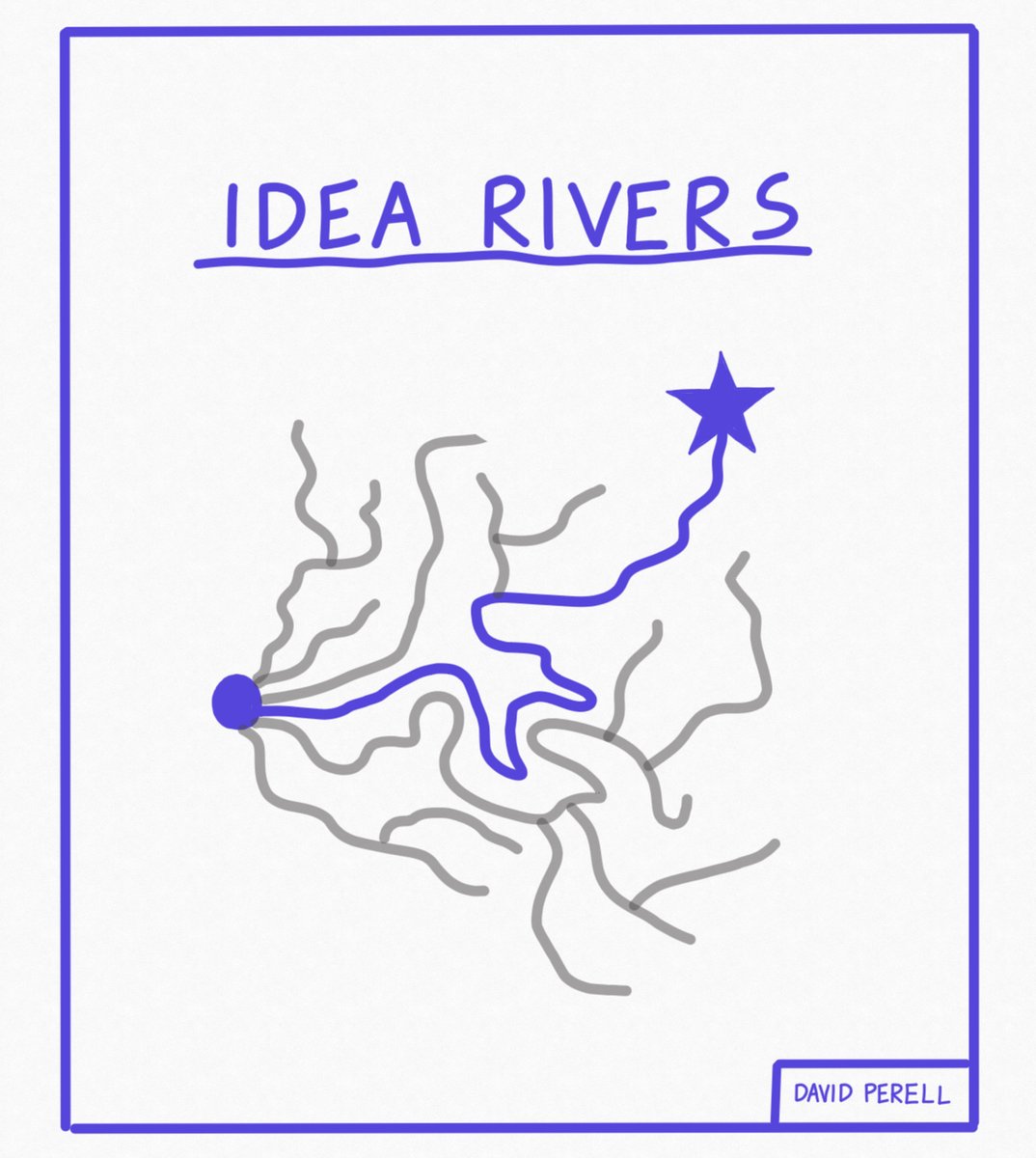

The paradox of decision making: It’s better to choose, commit, and get started instead of waiting for the best possible option, so the correct decisions are actually suboptimal. I shared my favorite paradoxes in this thread. twitter.com/david_perell/s…

By writing, you mine the depths of your psyche, picking up nuggets of gold that the thinking brain cannot access

I’ve always admired Stripe, and based on the people I know there, this is the right way to think about their culture. Especially the kindness part. pic.twitter.com/lbPdqBqQHJ
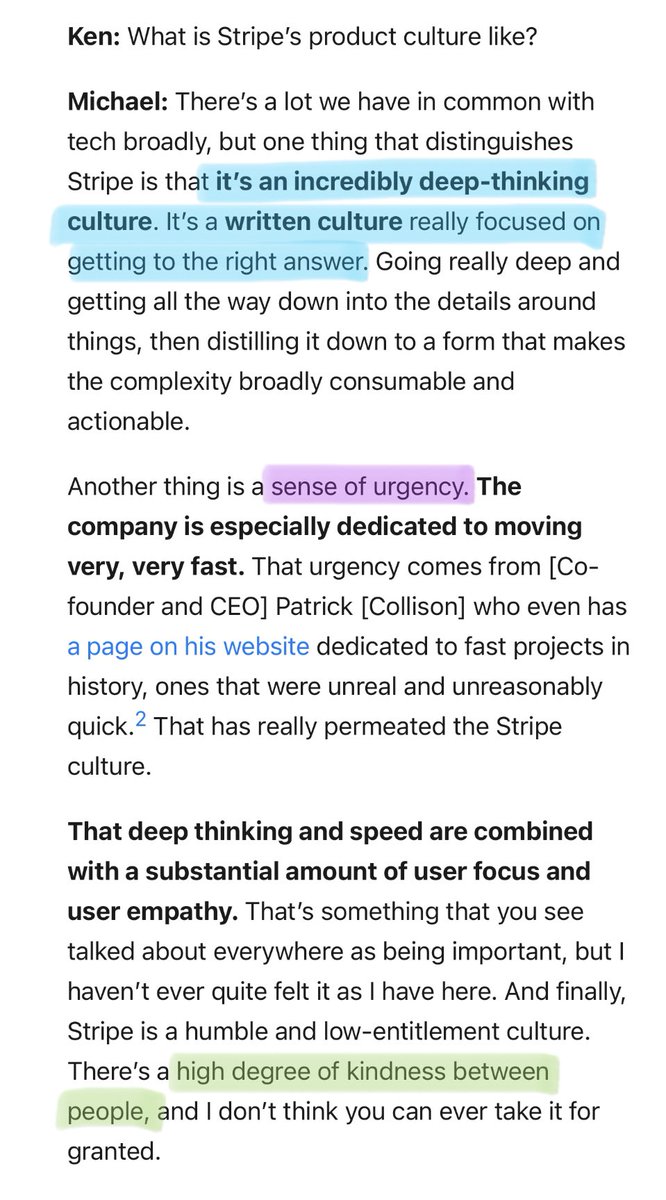
The remote work narrative is probably overblown, but there’s a huge class of talented people who won’t ever take an office job again. The taste of freedom is too sweet.

Just checking my note

My thesis for childhood education: • The Internet made learning free, so the real challenge is childcare. • Today, teachers do two jobs that won’t be done by the same person in the future: childcare and information. Here’s my mini-essay. pic.twitter.com/fNjOf5mNk9
